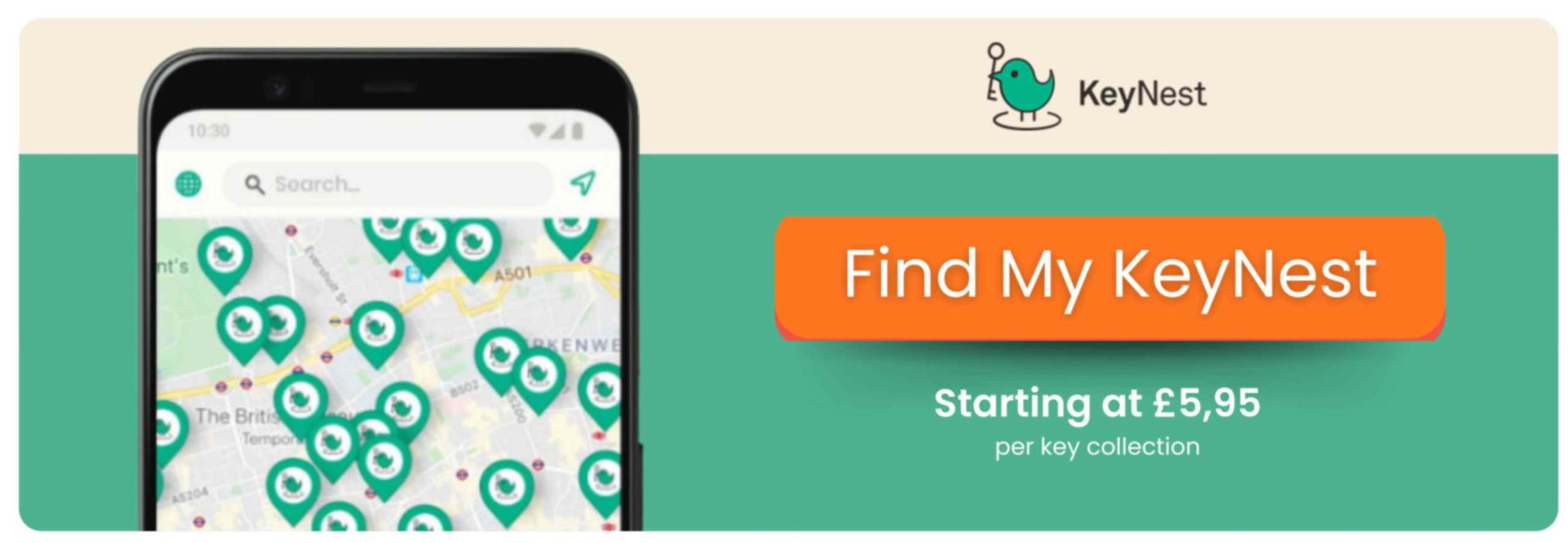Over 1500 key exchange locations nationwide
Airbnb & Short-Term Let Licence Regulation In Aberdeen, Scotland
As the popularity of short-term rentals continues to soar across the globe, cities like Aberdeen, Scotland, have implemented new regulations and licensing scheme to ensure that Airbnb rentals are managed in a way that balances the needs of hosts, guests, and the local community. Whether you are a current Airbnb host, a prospective one, or simply planning a visit to this charming Scottish city, understanding these regulations is essential to navigating the rental process smoothly and operating short-term lets continuously. Aberdeen’s unique blend of urban sophistication and historical charm has made it a sought-after destination for both tourists and business travelers, with Airbnb being one of the most popular platforms for booking accommodations.
However, as with any growing industry, regulations surrounding Airbnb rentals are evolving to maintain the integrity of the local housing market, preserve neighborhood tranquility, and provide safety for visitors. In this article, we will break down the key aspects of Aberdeen’s Airbnb regulations, offering valuable insights on what hosts need to know to stay compliant, as well as tips for guests who want to ensure they are booking properties that adhere to local laws. Whether you’re looking to start renting out your property or simply want to be informed about the rules surrounding Airbnb in Aberdeen, this guide will give you all the information you need. From licensing requirements to safety standards, noise control, and more, we’ll explore the regulatory landscape in detail to help you make informed decisions.
The city’s regulations aim to strike a balance between accommodating tourists and preserving the character of its residential neighborhoods. It’s important for Airbnb hosts to ensure their rental properties meet the local laws to avoid penalties and fines. Similarly, guests should be mindful of the guidelines to ensure a pleasant and legal stay. This article aims to serve as guidance for hosts and operators of let properties amidst the Scottish government regulations. Let's dive into the key regulations for letting of properties in Aberdeen to ensure everyone’s peace of mind and compliance with the law.
License Requirements For Short Term Lets In Aberdeen
For Airbnb hosts in Aberdeen, securing the correct license is one of the first steps in complying with local regulations. All short-term rental operators must apply for a license through Aberdeen City Council to legally rent out their property. This is to ensure that hosts meet safety, building, and insurance standards set by the council.
Licensing is mandatory: All Airbnb hosts must apply for a short-term rental license before listing their property and planning permission may be required.
Application process: The process involves submitting details about the property, its safety features, and compliance with local housing standards.
Fees and renewals: There is an annual licensing fee, and the license must be renewed regularly.
Safety standards: Hosts must adhere to safety regulations, including providing smoke alarms, fire extinguishers, and emergency exit routes.
Impact on property listings: Properties without a valid license cannot legally be listed on Airbnb in Aberdeen.
Inspection requirements: Some properties may be subject to a council inspection before approval.
Enforcement: Failure to obtain the necessary license can result in fines or removal from the platform.
Health & Safety In Short-Term Rental Regulation
The health and safety of guests are top priorities for Aberdeen’s regulations concerning Airbnb rentals. Hosts are responsible for ensuring that their properties meet specific safety standards. These regulations aim to provide guests with safe and comfortable accommodations, reducing the risk of accidents.
Smoke and carbon monoxide alarms: These must be installed and functioning correctly in key areas like hallways and bedrooms.
Fire safety measures: Proper fire exits, extinguishers, and signage must be in place.
Electrical safety: Hosts should have their electrical systems regularly inspected to avoid hazards.
Gas safety: A gas safety certificate is required for properties with gas appliances.
Sanitation standards: The property must be kept clean and hygienic for guests, including maintaining plumbing and waste disposal.
Guest awareness: Hosts must inform guests of emergency exits and safety procedures upon arrival.
Liability insurance: While not required by law, it’s strongly recommended that hosts secure insurance to protect themselves and their guests.
Noise Control & Residential Impact
In Aberdeen, managing noise and the impact on local residents is a significant concern for short-let rentals. As short-term rentals can increase the number of visitors in residential neighborhoods, the city has introduced regulations to prevent noise disturbances, ensuring that both residents and visitors can coexist peacefully.
Quiet hours: Some areas have specific quiet hours that guests must adhere to, typically after 10 pm.
Noise complaints: Hosts should address complaints quickly to avoid fines or eviction from the platform.
Neighbor relations: Open communication with neighbors can help prevent issues related to noise or disruptive behavior.
Enforcement by local authorities: If noise complaints escalate, the local authorities may issue warnings or fines to the host.
Responsible hosting: Hosts are expected to make their guests aware of local noise guidelines.
Local zoning rules: Zoning regulations may restrict short-let rentals in certain areas to prevent noise pollution.
Property limitations: Properties in quieter neighborhoods may have stricter noise controls to preserve the atmosphere.
Property Standards And Maintenance
To meet the required property standards, short-let hosts in Aberdeen must ensure that their accommodations are in good condition and regularly maintained. Properties should be well-equipped, functional, and offer a pleasant environment for guests.
Minimum safety standard of accommodation: The property must have essential facilities such as working plumbing, heating, and electricity.
Comfortable living space: Adequate furniture and bedding must be provided to ensure guest comfort and occupancy numbers.
Regular maintenance: Routine checks and maintenance should be carried out to ensure everything functions properly.
Cleanliness requirements: The property should be cleaned thoroughly before each guest arrives, including sanitization of high-touch areas.
Accessibility features: Properties should be accessible to all guests, including those with disabilities, where possible.
Up-to-date appliances: Hosts should keep appliances in working order and replace outdated or broken items.
Cosmetic upkeep: Minor repairs and cosmetic updates, such as painting and decoration, help maintain the appeal of the property.
Taxation Certificate & Reporting For Airbnb Hosts
Aberdeen hosts must also comply with tax regulations concerning their holiday rentals. It is essential to report earnings from short-term rental properties and ensure that taxes are paid appropriately, which may include income tax and VAT.
Income tax: short-let earnings are taxable, and hosts must report them as part of their annual tax returns.
VAT registration: If earnings exceed a certain threshold, hosts may need to register for VAT and charge VAT on their rental income.
Deductible expenses: Hosts can deduct certain business expenses, such as maintenance costs, cleaning fees, and insurance, from their taxable income.
Tax exemptions: There may be exemptions or allowances for hosts in specific circumstances, such as part-time renting.
Paying taxes: Hosts are responsible for ensuring their taxes are filed and paid on time.
Record-keeping: Accurate records of earnings and expenses should be maintained for tax reporting.
Consult a professional: Hosts may want to consult a tax professional for guidance on tax obligations.
Future Of Short-Term Rental Regulation In Aberdeen
The regulatory landscape for short-let rentals in Aberdeen is continually evolving. The city council may introduce new policies as the popularity of short-term rentals grows, so it’s important for both hosts and guests to stay updated on any changes that may affect their stay or operations.
Potential changes: Future regulations could include stricter requirements or additional restrictions on short-term rentals.
Impact of local elections: Local government elections could influence the direction of short-let regulations.
Monitoring short-let trends: The city may introduce new policies in response to emerging trends in the short-term rental market.
Consultation periods: Public consultations may be held for community input on potential regulation changes.
Enforcement: The local government will continue to monitor the implementation of regulations and enforce compliance.
Sustainability initiatives: Future regulations could include measures to make short-term rentals more sustainable.
Ongoing adaptation: The regulatory framework will evolve to balance the needs of residents, tourists, and hosts.
Navigating Let Licence In Aberdeen, Scotland
In conclusion, understanding and following the short-let regulations in Aberdeen is vital for both hosts and guests. By adhering to licensing, health and safety standards, noise control, and other local laws, hosts can create safe and enjoyable experiences for their guests while avoiding legal complications. Guests, on the other hand, can feel confident knowing that the properties they book meet the necessary standards for safety and comfort. As Aberdeen continues to grow as a destination for short-term rentals, staying informed about regulatory changes will be essential to ensuring that the city remains a welcoming place for both visitors and residents.
Whether you are a new host or a frequent guest, maintaining good practices and staying updated on the latest regulations will benefit everyone involved. It’s important to strike a balance between the needs of tourists and the local community to maintain the charm and appeal of Aberdeen. With the right knowledge and understanding of the laws, both hosts and guests can make the most of their holiday let experiences in this beautiful Scottish city. By embracing the rules and regulations, Aberdeen can continue to thrive as a top destination for travelers from around the world.
About Us
KeyNest offers you a convenient service for storing and exchanging your property keys. You can drop off a key at any of the 7,000+ locations in our network, so there’s one such Point located next to your property.
Guests, cleaners or contractors can then collect the key securely from a KeyNest Point or KeyNest Locker which is usually open 24/7. You'll be notified each time the key is picked up or returned, and you can even customize check-in and check-out times. By leveraging technology and a global network of locations, KeyNest continues to redefine property management, offering solutions tailored to meet the evolving needs of the rental market..
KeyNest has an ever-expanding global network of locations located just minutes from your property. To find out more you can contact us.
Neil Beltran 4 February 2025




